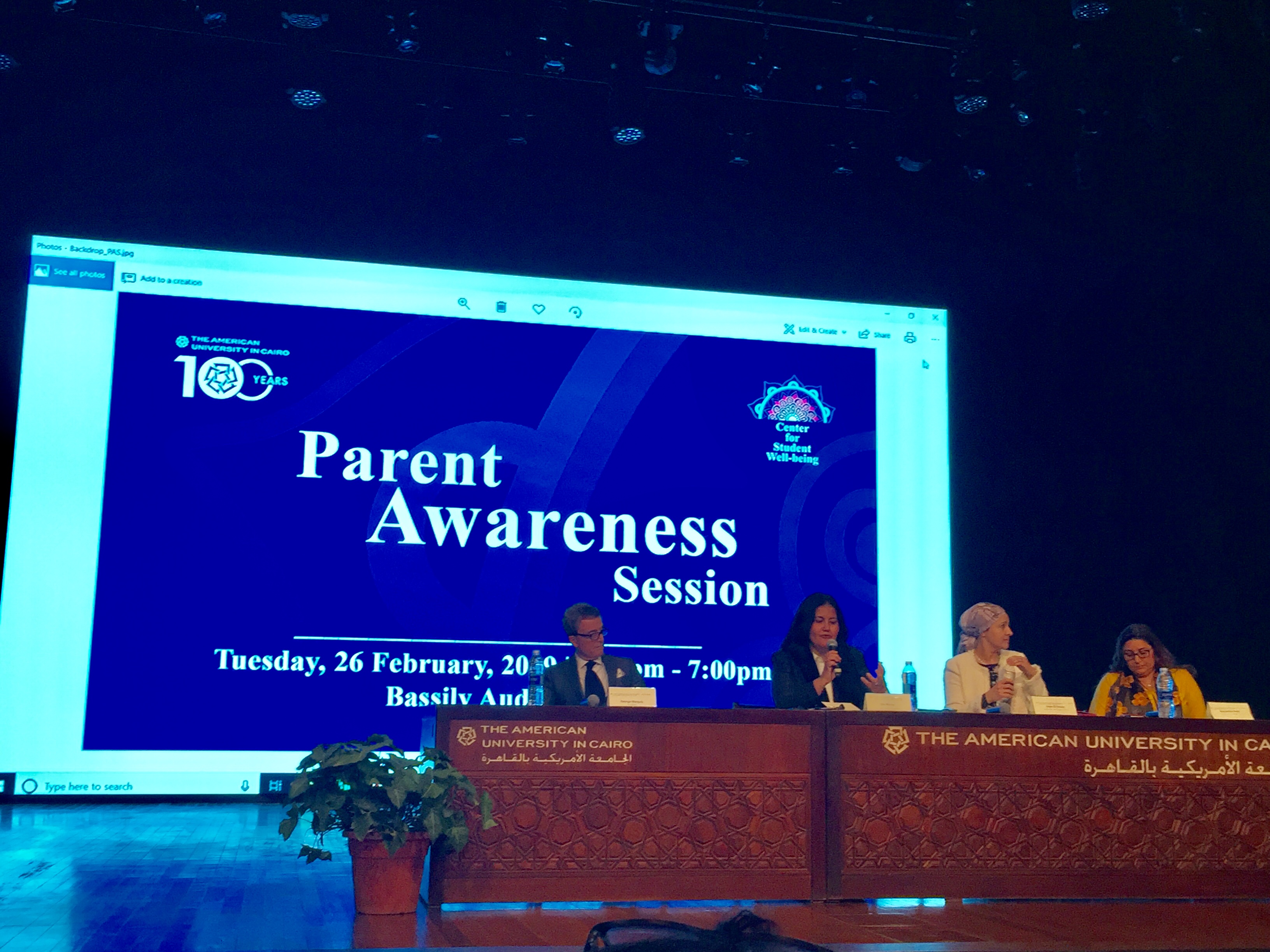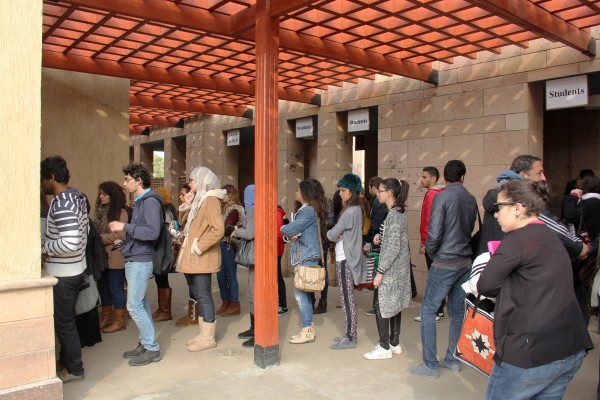Parents Given Tools to Help Students Overcome Academic Challenges
By: Monica Naguib
@MonicaNaguibb
Parenting plays a large role in how children deal with academic hurdles and mental health issues, but parents may sometimes feel overwhelmed or unaware of how to deal with these challenges.
The Office for Student Well-Being offered parents the tools needed to help their children overcome any obstacles in their academic lives during a Parent Awareness Session on February 26.
Zeinab Abu al-Khair, Officer of Outreach and Reporting at the Office for Student Well-Being and the organizer of the session, pointed out that the Office is fully aware of the challenges parents face during their children’s years at the university, which makes the staff there keen to help.
One of the areas of concern arises during the transition from high school to university, when some parents pressure their children to study more as they notice a decline in academic performance.
“Sometimes learning disabilities suddenly appear in university, as they were handled in school by private lessons and parents’ supervision,” Associate Director for Coaching and Learning Success Iman El Omary said.
Associate Director for Student Disability Service Alexandra Gazis said that parents should communicate with the center to ask for help when their child’s academic performance declines.
Bearing in mind that acquiring the documentation required for starting treatments of learning disabilities takes time, the center directs students with symptoms of learning disabilities to professionals outside the university for evaluation and assessment.
After the evaluation, the center supports the students by informing their professors of their cases and scheduling weekly meetings. In the meantime, parents are also required to be fully aware of their children’s health conditions and academic performance.
Gazis assured parents that any information about disabilities is kept completely confidential and is not communicated to faculty or mentioned in any official transcript.
“Professors do not have the right to reject or refuse any accommodation that comes from our office,” Dean of Students George Marquis said.
This also applies to physical disabilities such as vision and hearing impairments. The Assistive Technology Unit works on allowing the impaired students full access to course material.
“According to Egyptian law and the Americans with Disabilities Act (ADA) that we follow, every person with any disability has the full right to get equal access to high education,” Gazis added.
However, some parents pressure their children to study a major they do not like such as engineering and business administration to continue the family business. Other parents may pressure their children to get straight A’s.
This kind of pressure is unhealthy. As long as the student is doing well, the ceiling should not be high, explained Senior Director for Centre of Student Well-Being and Consultant Psychiatrist Ola Morsy.
Morsy said that academics are not the only priority parents should have, because well-being is equally important. Many students lack their parents’ support resulting in low self-esteem, which is the “seed to mental health problems”.
Joining clubs and extracurricular or co-curricular activities can help students gain self-esteem and improve their social skills, Morsy added.
Gazis emphasized that students can also start a club if they do not find the one that meets their interests, and the university is very welcoming regarding new clubs.
So far, efforts from the Office of Well-Being to engage students and their parents appear to be paying off and easing the challenges of university learning for students.
“The Centre of Student Well-Being is very cooperative and supportive. That makes me very keen to know what I can do for my son,” Marwa Hatem, mother of a Computer Science sophomore, said.




